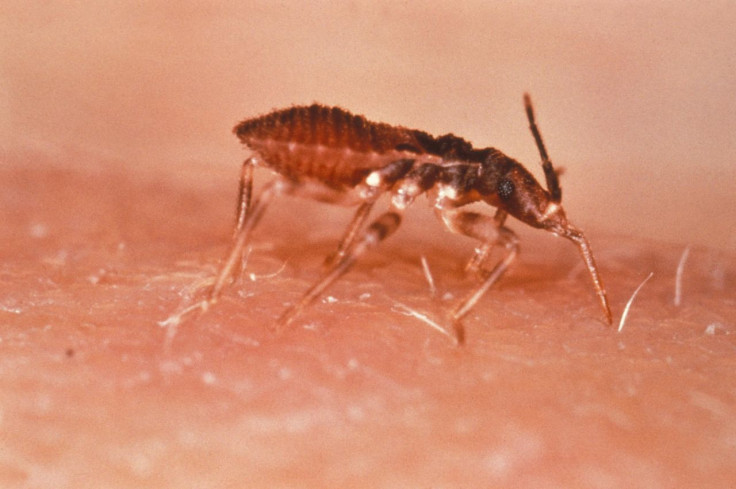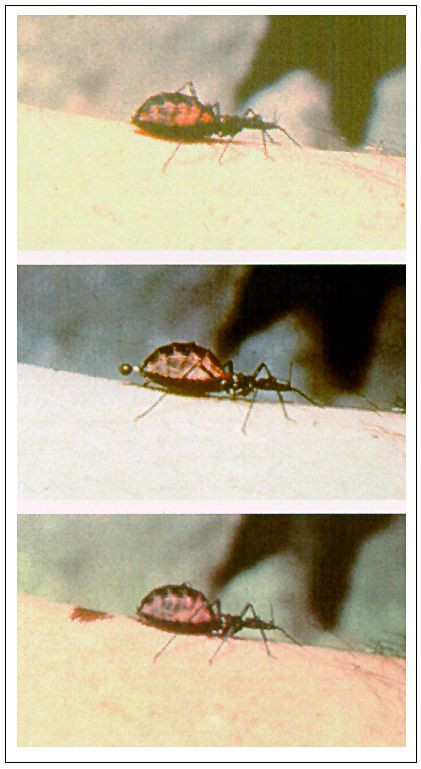Chagas Disease: Kissing Bug that Feeds on People's Faces at Night 'Emerging Health Threat' in US

A disease spread by a "kissing bug" that feeds on people's faces at night has been identified as a new public health threat in the US.
Chagas disease is a parasitic infection that can lead too severe heart disease and death. It is spread through the faeces of vampire triatomine bugs that feed on people at night. Once they have bitten and ingested blood, they defecate on their victim and parasites enter the body through tiny lacerations to the skin.
The disease is thought to affect between seven and eight million people worldwide and while it can be cured if caught early, researchers at the American Society of Tropical Medicine and Hygiene (ASTMH) Annual Meeting said Chagas is currently undiagnosed and untreated.
Most commonly, the disease is found in Mexico, Central America and South America. However, it is becoming increasing prevalent in southern states of the US , with high reports emerging from Texas in particular.
Published in the American Journal of Tropical Medicine and Hygiene, researchers from Baylor College of Medicine in Houston say people are contracting the disease within US boarders.

Melissa Nolan Garcia, one of the researchers who presented findings, said: "We were astonished to not only find such a high rate of individuals testing positive for Chagas in their blood, but also high rates of heart disease that appear to be Chagas-related. We've been working with physicians around the state to increase awareness and diagnosis of this important emerging infectious disease."
The team tested for Chagas between 2008 and 2012 by analysing routine testing of blood donors. One in every 6,500 samples tested positive for the parasite – 50 times higher than the US Centres for Disease Control.
"We think of Chagas disease as a silent killer," she said. "People don't normally feel sick, so they don't seek medical care, but it ultimately ends up causing heart disease in about 30 percent of those who are infected."
Chagas symptoms include fever, fatigue, aches and intestinal and cardiac complaints. "We are concerned that individuals who test positive are not seeking medical care or being evaluated for treatment," Garcia said. "And even if they do seek medical care, we heard from some patients that their primary care doctors assumed the positive test represented a 'false positive' due to low physician awareness of local transmission risk."
The lack of awareness of the disease – among the public and health care professionals - is believed to be a huge factor. Experts say a comprehensive screening and surveillance system is required to improve treatment of the disease.
Kristy Murray, associate professor of tropical medicine at Baylor, said: "So little surveillance has been done that we don't know the true disease burden here in the United States. The next step is to study populations considered high risk. There is still a lot to be learned in terms of who is contracting the disease within the United States."
© Copyright IBTimes 2025. All rights reserved.






















